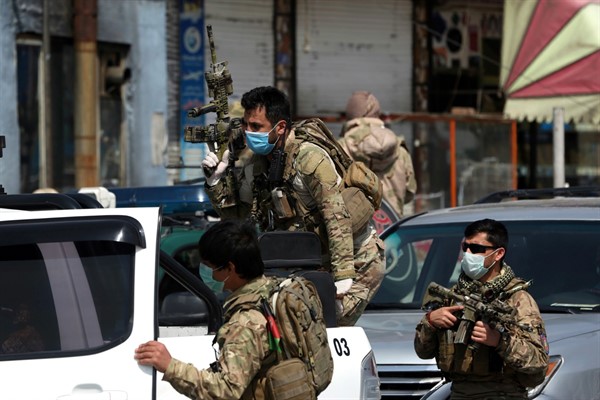The COVID-19 pandemic is affecting the entire world—but in vastly different ways. In particular, efforts to “flatten the curve” could create huge but unquantified costs for the most vulnerable. As a result of measures to contain the coronavirus’s spread, the specter of “biblical” hunger now hangs over much of the globe. At the same time, social distancing strategies remain an unattainable mirage for the hundreds of millions of people living in crowded quarters in the developing world.
For fragile and conflict-affected countries, the pandemic represents a grim, dual challenge that risks threatening a precious good: peace. Many of these countries were already at risk, as their populations’ resilience has been seriously hampered by years of economic, emotional, social and political hardship. The coronavirus has the potential to tip them over the edge completely. The health minister of Afghanistan announced that 80 percent of the population may be affected by the virus, in a country where many already do not have access to basic health care and water. The same is true in Yemen, where the war has destroyed more than half of the country’s hospitals.
The impact of the macroeconomic problems the pandemic is creating for these countries is no less severe. Debt is soaring and fiscal space is closing, with direct implications for social policies critical to sustaining peace. In Timor-Leste, also known as East Timor, the Central Bank reported that the country’s Petroleum Fund has already lost $1.8 billion in value after a drop in global demand due to the pandemic caused oil prices to fall—and this was before the mid-April collapse in the global oil market. The fund covers Timor-Leste’s infrastructure needs and provides critical financing for social protection programs.

